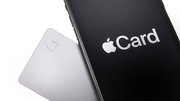Article
Concern rising over touchscreen sanitation
More than 70% of respondents in the U.K. are worried about using public touchscreens due to possible exposure to contamination. The kiosk industry has to a adopt a zero tolerance position to prevent risks from touchscreens.

August 28, 2019 by Elliot Maras — Editor, Kiosk Marketplace & Vending Times
Self-service kiosks have maintained a strong public safety record over the years, but industry leaders recognize they need to pay close attention to sanitation as kiosks continue to expand at a rapid pace.
A recent survey sponsored by Kastus, an Ireland-based provider of microbial coating for kiosk touchscreens, revealed U.K. consumers are concerned about potential contamination. While the survey did not ask what caused the concern, a British report last year about restaurant kiosk contamination drew a lot of media attention. A newspaper, Metro, reported in November that bacteria was found on kiosk touchscreens at McDonald's locations around London and Birmingham.
Health experts interviewed by Kiosk Marketplace, following the Metro report, agree the bacteria risk from kiosk touchscreens is manageable, and many observers view the Metro article as overly alarmist in its reporting as the touchscreens sampled in the study did not cause any illnesses.
U.K. consumers are concerned
Nevertheless, more than 70% of respondents in the U.K. are worried about using public touchscreens.
Bank ATMs cause the most concern among respondents, with 72% of respondents citing bank ATMs as posing the greatest risk. Hospital check-in screens landed in close second at 70%, followed by fast food chain order screens and supermarket self-service kiosks, both at 58%, and airport check-in kiosks and hotel check-in kiosks, both at 40%.
The online survey advised consumers that 80% of bacterial infections come from what people touched, then asked them to indicate which of the self-service situations noted above concerned them most.
Trend-Monitor, a trend analysis firm that studies surfaces, kitchens and bathrooms, conducted the survey, which queried more than 1,000 U.K. consumers in a nationally representative sample based on age and gender in June of 2019.
Touchscreens do pose a risk
"Touchscreens and smartphones are an ideal surface for bacteria to reproduce due to the heat they emit, harboring all kinds of germs that can easily thrive in those conditions," John Browne, founder and CEO of Kastus, said in a press release announcing the survey results.
"It's a perfect storm; the bacteria can just so easily spread on these screens, then spread from screen to screen" Browne said in a recent podcast, "24/7 Germ-Free Touchscreens — Protection for Life." He said there is more bacteria on a kiosk screen than a toilet seat, and that consumers are exposed to infectious germs such as MRSA, E. coli and more.
Browne also said companies introducing kiosks face a reputational risk. He said health care is the sector at the greatest risk due to hospital check-in kiosks, followed by the food, transportation and public sectors.
Browne specifically criticized the health care sector for not taking more action to ensure touchscreen safety. Many hospitals are using what Browne called "old fashioned cleaning methods" where every few days someone rubs a damp cloth on the touchscreen, which only compounds the issue.
He also said regulatory agencies need to mandate sanitation requirements, and that non-government bodies also need to address the issue using new technologies.
Following the U.K. McDonald's report last year, Kiosk Marketplace encouraged readers to adopt a zero tolerance policy for preventing exposure to harmful bacteria.
About Elliot Maras
Elliot Maras is the editor of Kiosk Marketplace and Vending Times. He brings three decades covering unattended retail and commercial foodservice.













